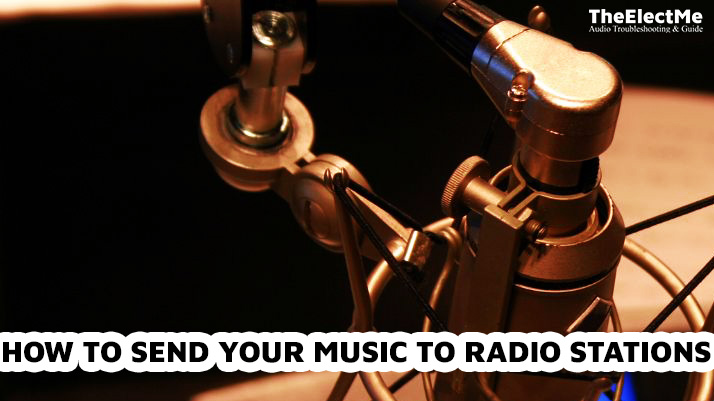Sending your music to radio stations is often seen as a complicated process. Many budding musicians believe only celebrities or those with connections can air their songs.
Another common misconception is that sending your music to radio stations requires a large budget. However, these beliefs are not entirely true. But how to send your music to radio stations without any hassle? Let’s explore the steps and tips for getting your songs played on the radio.

Understanding the Radio Industry
Before sending your music to radio stations, it’s essential to understand the industry and how it operates. There are different types of radio stations Like:
- Commercial radio stations
- Public radio stations
- College radio stations
Each type has its target audience and format for their shows.
Commercial radio stations focus on playing popular music from mainstream artists. These stations rely heavily on advertising revenue and have a larger audience than other radio types.
Public radio stations like NPR (National Public Radio) often feature news, talk shows, and indie music. These stations are non-profit and are funded by donations from listeners.
Students run college radio stations and typically feature alternative, underground music. They provide a platform for independent artists to get their music heard.
When it comes to selecting songs for airplay, it varies depending on the station’s format and target audience. So, it’s essential to research and understand the radio station you want to send your music to. After understanding the stations, let’s move to preparing music for radio.
Preparing Your Music For Radio Play
When sending your music to radio stations, ensure your songs are radio-ready. This means having high-quality recordings with clean audio and professional mixing and mastering.
Here are some tips for preparing your music:
- Use appropriate language: Avoid profanity or explicit content, especially targeting commercial or public radio stations.
- Polish your sound: Ensure your songs have clear, crisp audio without background noise or distortion.
- Make a radio edit: Consider making a shorter version of your song, especially if it’s longer than three minutes. Many stations have specific time limits for the songs they play.
- Have an eye-catching album cover: A visually appealing album cover can catch the attention of radio station staff and listeners alike.
How To Send Your Music To Radio Stations?
After preparations, it’s time to send your music to radio stations. Here are some steps to follow:
Research and create a list of potential stations
You need to know which stations play the genre of music you create. If you need clarification, listen to the stations and note their format. Create a list of potential stations that match your music style.

Get contact information
Next, find the contact information for each station on your list. It includes email addresses or physical mailing addresses for submission. If you need help finding it, call the station and ask for the correct submission method.
Follow submission guidelines
Radio stations have specific guidelines for submitting music, such as preferred file formats or demo submission packages. Follow these guidelines carefully to increase your chances of getting noticed.
Include a press kit
A press kit is an essential tool that showcases your music and brand. It typically includes a biography, high-quality photos, and any accolades or achievements you have received as an artist. Including this with your submission can help radio stations better understand who you are as an artist.
Follow up
After sending your music, follow up with the radio stations to ensure they received your submission. You can also use this opportunity to ask for feedback or inquire about airplay opportunities.
You can also submit music to blogs without breaking the bank.
What To Do After Your Song Gets Radio Play?
When your song gets played on the radio, it’s an exciting milestone in your music career. But your work continues. Here are some things you can do to maximize the impact of your airplay:

- Promote your song: Use social media and other platforms to promote your music and tell people when it will be played on the radio.
- Connect with listeners: Engage with listeners on social media and thank them for tuning in. This can help build a relationship with your audience.
- Keep submitting to other stations: Getting airplay on one station doesn’t guarantee success. Continue offering your music to different stations to increase your exposure.
- Stay humble: Remember that getting played on the radio is just one step in your musical journey. Stay humble and keep working hard to achieve your goals.
After songs play on music stations, use a subwoofer to enhance the bass. There are different types of subwoofers that you can choose from, such as active and passive subwoofers.
Final Thoughts – How To Send Your Music To Radio Stations?
To conclude, the music industry is a competitive field. You may face rejection and setbacks when trying to get your songs played on the radio. But, with determination and the right approach, you can increase your chances of success.
Remember to understand the industry, prepare your music for radio play, and follow the proper steps for submission. And most importantly, never give up on your dreams of hearing your music on the airwaves.
With hard work and persistence, you can make it happen.
So keep creating fantastic music, and don’t be afraid to put yourself out there. Your song might become the next radio hit. Keep sending your music to radio stations, and never stop chasing your passion for music.



